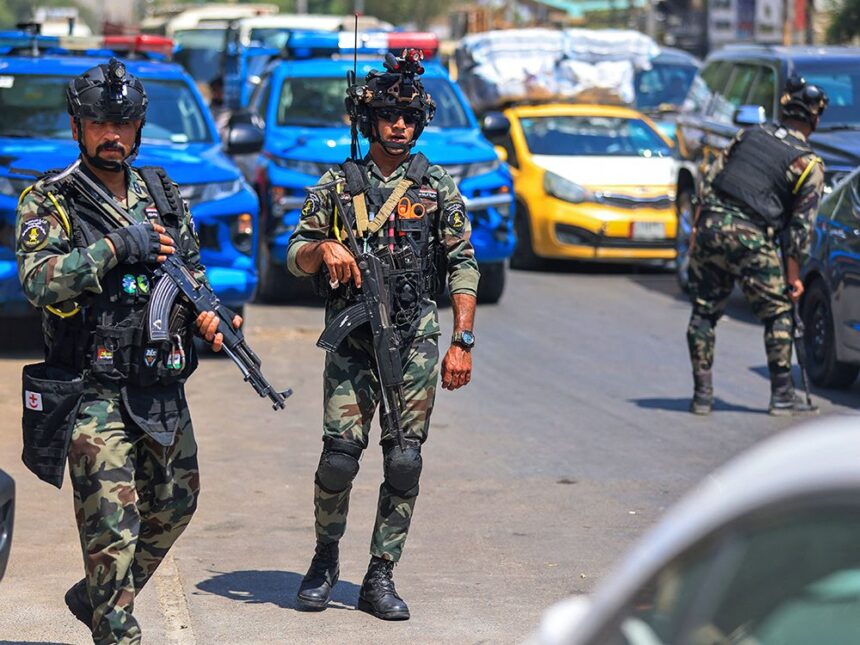The evacuation of American diplomatic personnel from multiple U.S. embassies across the Middle East marks a dramatic escalation in Washington’s assessment of regional threats. As tensions between Israel and Iran reach dangerous new heights, the State Department has ordered non-essential staff and family members to depart from Lebanon, Iraq and Israel—a decision that signals growing concern about potential regional conflict.
Standing outside the U.S. Embassy in Beirut yesterday, I watched American families hurriedly loading suitcases into diplomatic vehicles. “This isn’t my first evacuation,” a veteran embassy employee told me, requesting anonymity due to security protocols. “But the speed and scope of this one feels different.”
The State Department cited “the unpredictable security situation” as justification for the evacuations. This diplomatic language barely masks the reality on the ground: intelligence services are detecting concrete threats of Iranian retaliation following Israel’s strike against Iran’s embassy compound in Damascus that killed several Islamic Revolutionary Guard Corps commanders, including General Mohammad Reza Zahedi.
“We’re witnessing a dangerous feedback loop of escalation,” explains Dr. Sarah Kamali, senior fellow at the Institute for Middle East Policy. “Each side feels compelled to respond to maintain credibility, but each response raises the stakes further.”
The evacuation order comes as Iran’s Supreme Leader Ayatollah Ali Khamenei publicly vowed a “harsh punishment” for Israel, declaring the Damascus strike equivalent to an attack on Iranian soil. Meanwhile, Israeli officials have maintained their right to defend against what they describe as Iranian proxy threats coordinated from the Damascus compound.
This crisis represents the most dangerous moment in the region since October 7, when Hamas’ attack on Israel triggered the ongoing Gaza conflict. That war has already claimed over 33,000 Palestinian lives according to Gaza health authorities and has steadily expanded to include exchanges of fire with Hezbollah in Lebanon and Houthi attacks on shipping in the Red Sea.
The Biden administration finds itself in an increasingly difficult position, attempting to support Israel while preventing a wider regional war that could draw in American forces. “The U.S. is engaged in intensive diplomatic efforts to prevent further escalation,” State Department spokesperson Matthew Miller stated yesterday, though he declined to provide specific details about these initiatives.
On the streets of Beirut, the evacuation order has exacerbated fears among Lebanese citizens already suffering through political and economic crises. “We see the Americans leaving and wonder what they know that we don’t,” said Fatima Khoury, a shopkeeper near the embassy. “When they go, it usually means something bad is coming.”
Military analysts point to the unprecedented nature of the current situation. “What makes this particularly dangerous is that Iran feels compelled to respond directly rather than solely through proxies,” explains retired U.S. Army Colonel David Reynolds, who previously served as a defense attaché in the region. “This changes the calculus completely.”
The Pentagon has reinforced its military presence in the region, deploying additional fighter squadrons and the USS Eisenhower carrier strike group to the eastern Mediterranean. These deployments serve dual purposes: deterring Iranian aggression while positioning assets to protect American interests if conflict erupts.
For ordinary citizens across the Middle East, the diplomatic evacuations represent yet another sign of deteriorating security in a region that has known little peace. In Baghdad’s Green Zone, where the massive U.S. Embassy compound stands as a fortress within the city, Iraqi employees expressed concern about being left behind.
“The Americans can leave whenever they want,” said Mohammed, who has worked at the embassy for eight years. “We Iraqis have nowhere to go if this turns into another war.”
The evacuation orders notably exclude U.S. diplomatic facilities in Gulf states like Saudi Arabia and the United Arab Emirates, suggesting intelligence agencies believe Iran’s response will focus on Israel and countries hosting substantial U.S. military forces.
Historical precedent offers little comfort. Previous regional evacuations have preceded significant conflicts, including the 1990 Iraq invasion of Kuwait and the 2003 Iraq War. While evacuation orders don’t guarantee conflict, they reflect serious assessments by intelligence agencies about imminent threats.
As night falls in Beirut, the lights in many embassy staff apartments have gone dark. American flags have been lowered from diplomatic vehicles, and security personnel maintain heightened vigilance around diplomatic facilities. The region waits anxiously for Iran’s next move, aware that miscalculation by any party could trigger a devastating regional conflict with global implications.
Whether diplomacy can prevail remains uncertain. What is clear is that the Middle East stands at another critical juncture, with civilians once again bracing for potential consequences of decisions made in distant capitals.






